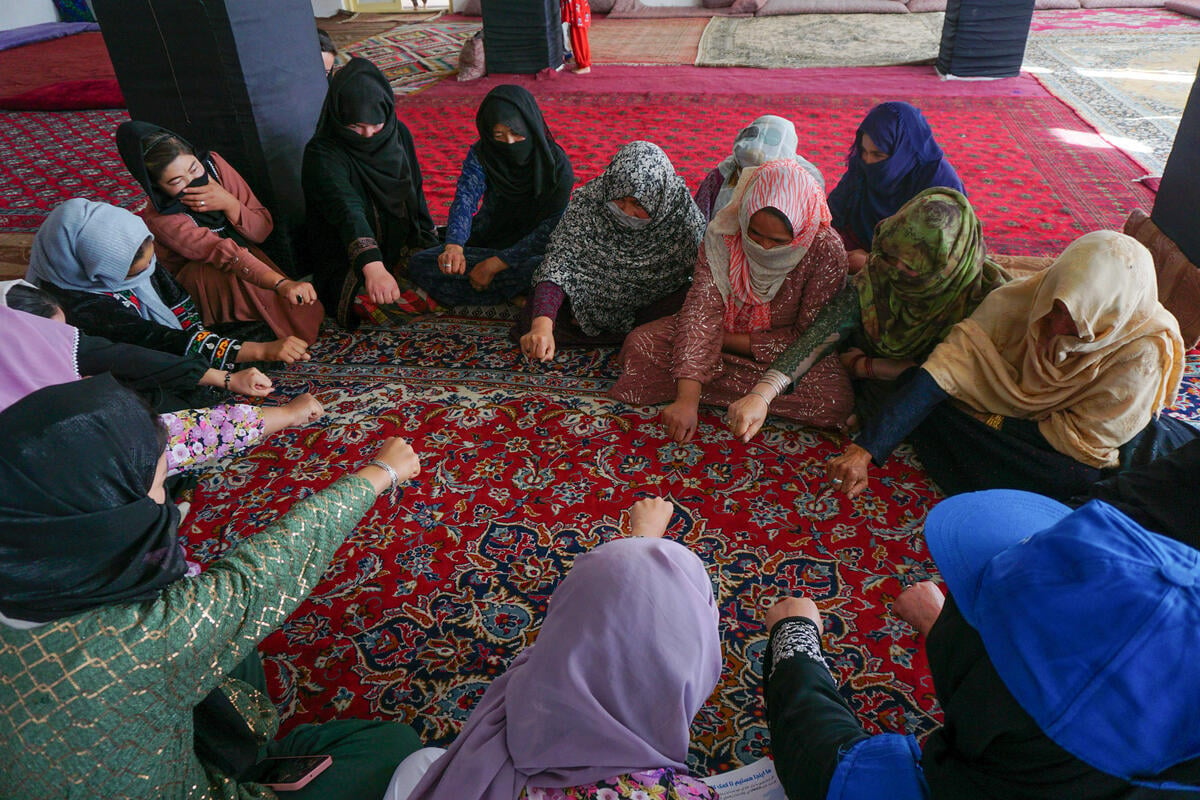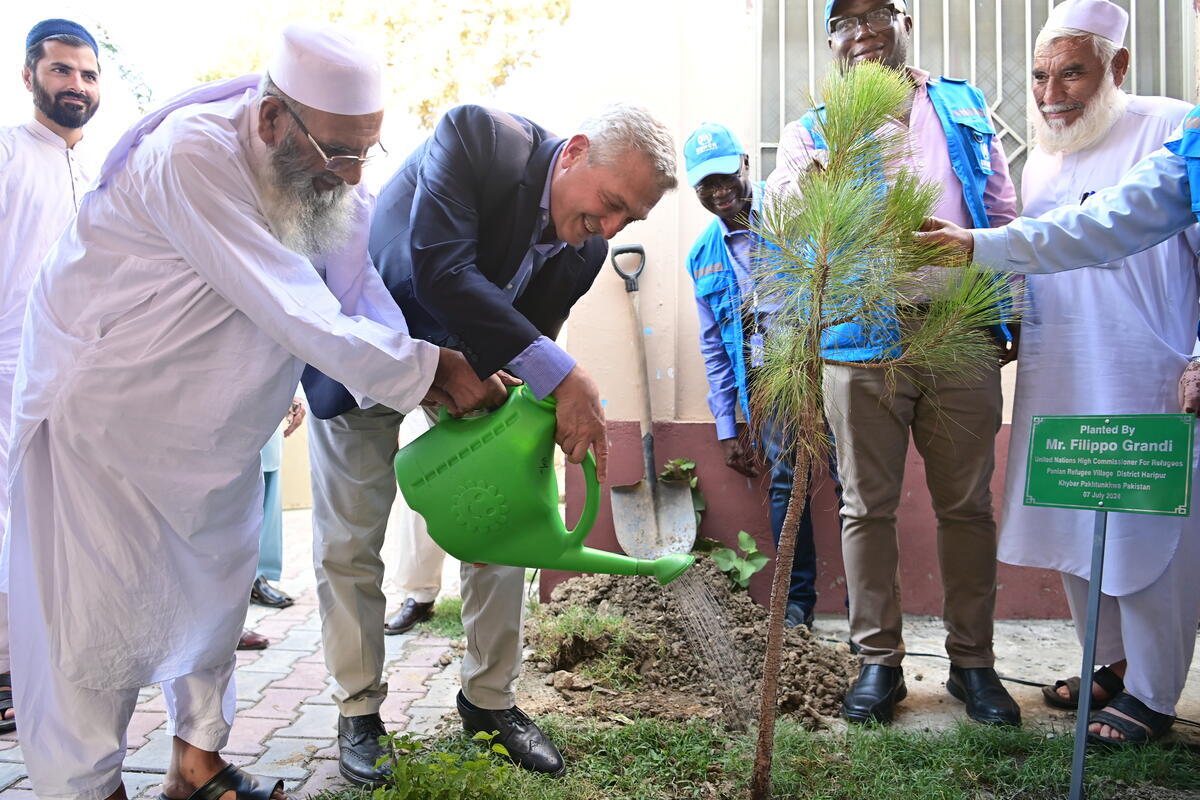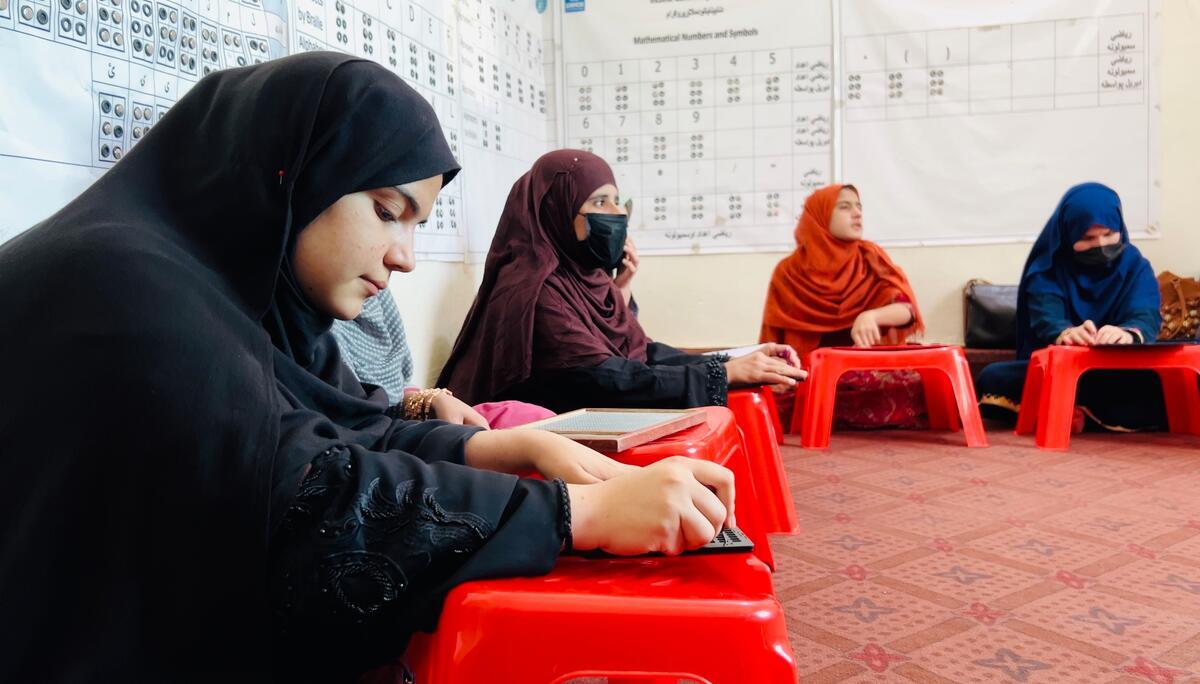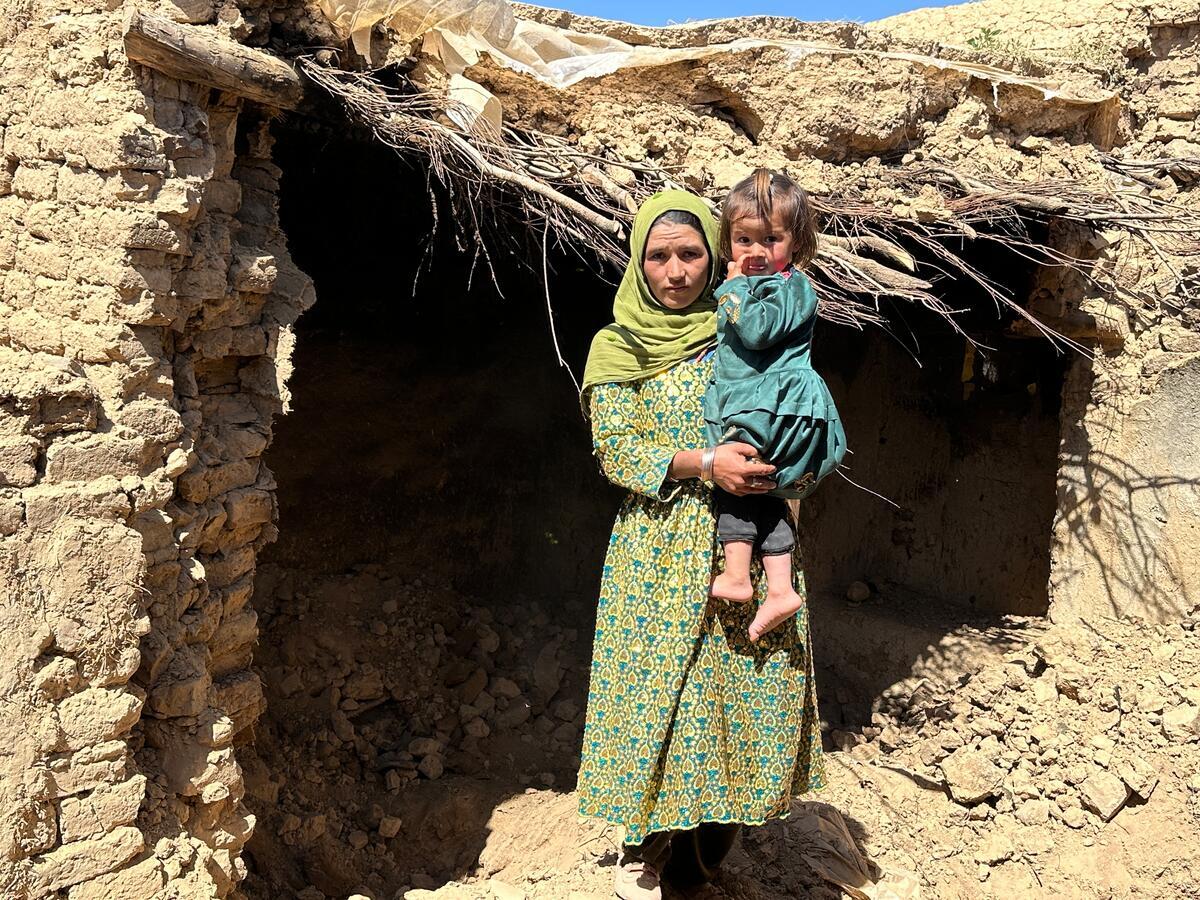UNHCR begins transfer of invisible refugees to camps
UNHCR begins transfer of invisible refugees to camps

QUETTA, Pakistan, Nov. 29 (UNHCR) - The United Nations High Commissioner for Refugees began its first transfer of so-called 'invisible refugees' from the city of Quetta to a camp where they will be able to receive food and medical aid.
The invisible refugees, defined as Afghans who entered Pakistan through backroads and mountain passes since the September 11 attacks in the United States and subsequently melted into the local population, have been afraid to seek help for fear of being deported.
As a result, most of them have either moved in with relatives into already overcrowded houses, eating poorly and receiving little medical assistance, or melted into the local populations in the big cities.
Around 250 civilians were taken to the Mohammed Khel Camp 85 kilometres south-west of Quetta, where they received food and other supplies. The camp, which has a capacity for 40,000 people, currently holds only 8,000 refugees. UNHCR said Wednesday it hopes to transfer as many as 10,000 of the 'invisible' refugees to the camp.
The refugee agency has urged the government to insure they would not be deported, arguing that allowing the invisible refugees into the camps would permit a more orderly eventual repatriation.
In northern Pakistan, meanwhile, more than 1,000 refugees living in Peshawar have registered with UNHCR so they can be relocated in camps.
Transfers from the Killi Faizo staging site at the Chaman border to the Roghani camp continued Thursday, as did the voluntary transfer from Jalozai camp outside Peshawar to the new camp at Kotkai.
More than 4,600 people have been moved to Kotkai in the last ten days, which is being prepared to accommodate as many as 12,000 refugees.
About 1,000 refugees were moved from the Killi Faizo site Thursday to Roghani Camp even as Afghans continued to arrive at the Chaman crossing. Roghani now holds over 13,000 people.








